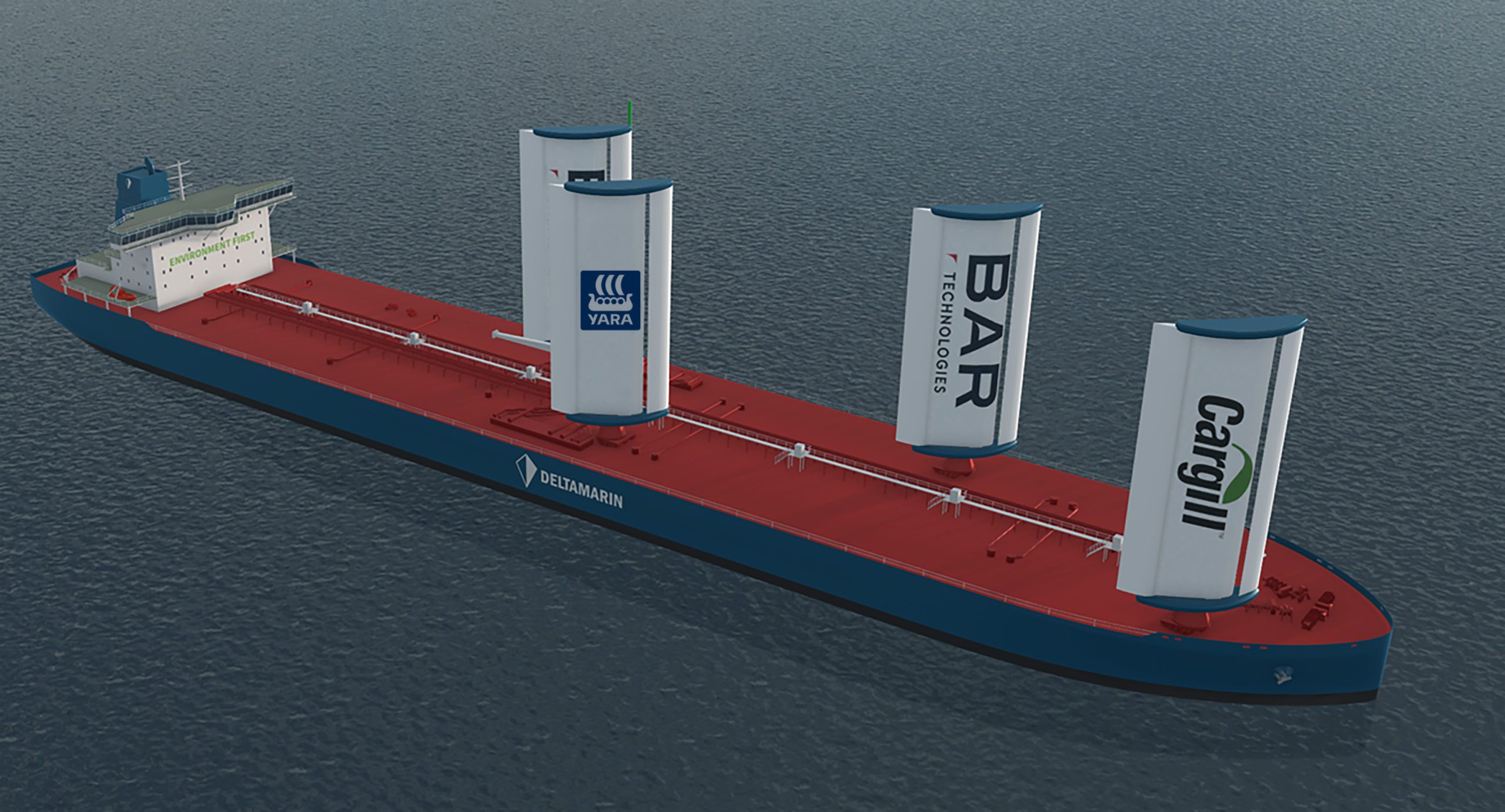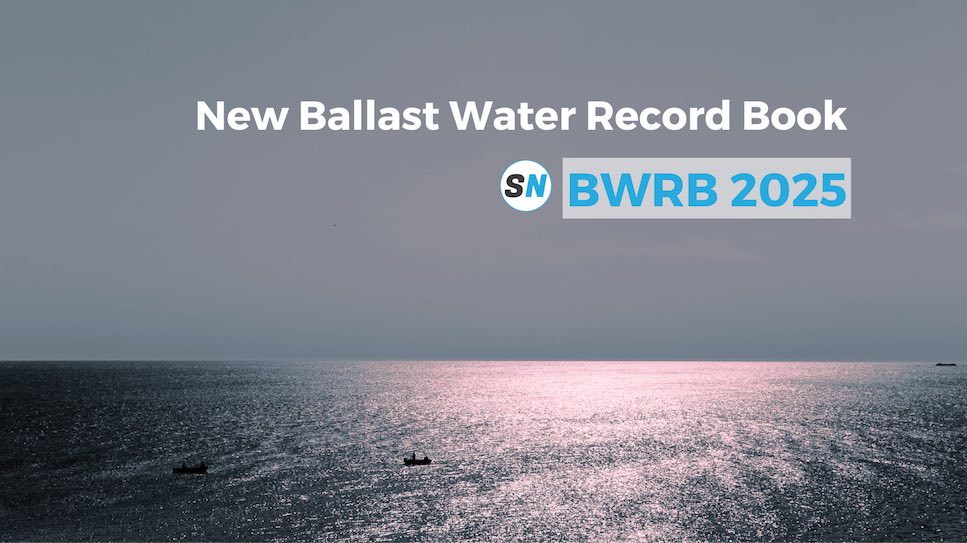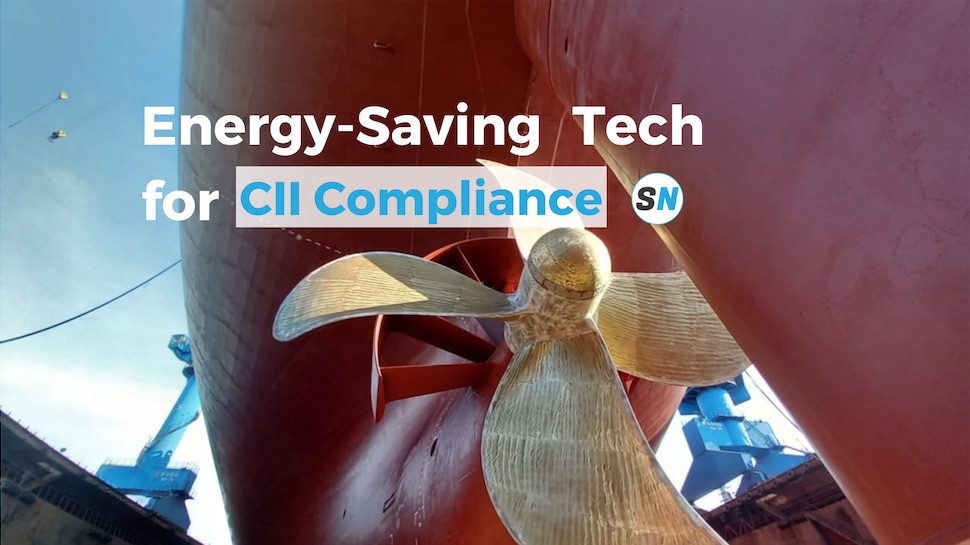28 November 2024
Wind Propulsion Technology Approved in Principle by DNV

DNV has awarded an Approval in Principle (AiP) to the marine engineering consultancy BAR Technologies (BARTech) for their wind propulsion technology. The WindWings by Yara Marine Technologies received the award as a wind propulsion technology.
Above all, Yara claims that the solid wing sails can offer up to a 30% average fuel reduction. However, this estimation applies to bulk carriers, tankers, and other large vessels.
To clarify, this is based on global routes by combining wind propulsion with route optimization.
In short, the secured AiP from the Norse classification society is another major step in BARTech’s journey towards certification for their wind propulsion technology.
Approval keypoints
The AiP assures the industry of the practicality and safety of the WindWings technology. The wind propulsion technology approval process comes through a thorough assessment of the technology following particulars:
- Design specifications
- Safety and usability considerations
- General applicability to sea-going vessels.
Additionally, the approval examined the deployment and functionality of WindWings in operation and system redundancy. Especially when used in extreme weather conditions.
External analysis
Nevertheless, the acclaimed maritime consultancy Wolfson Unit has also independently analyzed and verified the emissions reduction potential of WindWings.
“Verification of anticipated performance metrics is a service we are routinely approached for by the global maritime industry, where the accuracy of such expectations is of paramount importance. We were engaged by a client to take a closer look at WindWings and are pleased to report that our predictions of the solution’s performance were in good agreement to those of BAR Technologies.”
Martyn Prince, Principal Research Engineer, Wolfson Unit
Views from each side
“Securing this AiP from DNV is another important step in driving WindWings towards certification. Validation from the shipping industry’s leading classification societies is crucial to proving the technical and commercial viability of emerging energy efficient technologies to shipowners and investors alike.”
John Cooper, CEO, BAR Technologies
“We are pleased to be able to issue this AiP to BARTech for the WindWings technology. Class Approval in Principle can help to build confidence in shipowners and operators by demonstrating that new technologies that help to lower fuel consumption and carbon emissions like WindWings, have been rigorously assessed to long-standing, high quality technical standards. We look forward to seeing the system in operation when it hits the water.”
Per Marius Berrefjord, at DNV Maritime
Earlier this year, BARTech partnered with Yara Marine Technologies (Yara) for manufacturing and delivery. Hence, enabling the sale and market induction of the WindWings to the global shipping industry. For the first retrofit on a kamsarmax vessel, Yara will install two wind propulsion wings, expected for delivery in December 2022. The European Union will fund one of the two wind propulsion units as part of Project CHEK. Thus, enabling the evaluation of the energy saving potential of multiple technologies working in symbiosis.
“As part of the consortium taking the WindWings technology to the global shipping market, we’re thrilled to pass this milestone on the journey to lower maritime emissions. The approval has confirmed the viability of the technology to our industry network, and we anticipate the product to deploy rapidly across the sector within the decade.”
Thomas Koniordos, Chief Executive Officer, Yara Marine Technologies
Nerdy thoughts for Wind Propulsion
The current use of alternative fuels and renewable energy sources within the shipping industry is still relatively scarce. In addition, the environmental legislation for emissions reduction is growing and seems to threaten the performance of ships.
Considering these concerns, there is the need to develop and apply innovative alternative power and propulsion technology for ships.
Therefore, the industry players are increasingly putting a modern spin on one of the oldest concepts in shipping. On another approach, Norsepower installs Rotor Sails on hybrid ferries to provide a 4 – 5% CO2 reduction.
It is exciting to witness the harnessing of wind energy for ship propulsion and its developments. Hope for more soon…
Source: Yara


